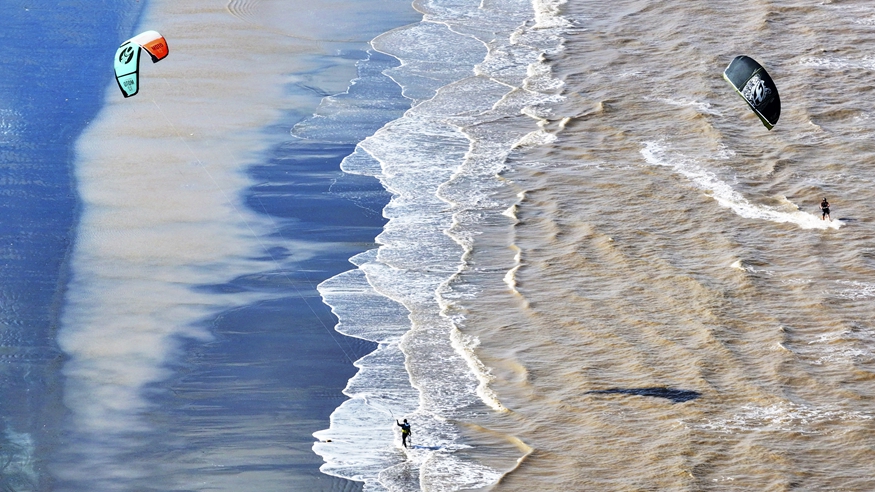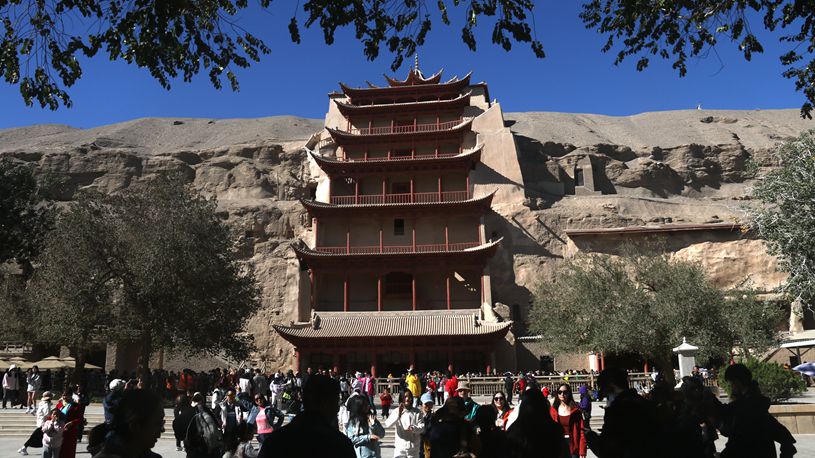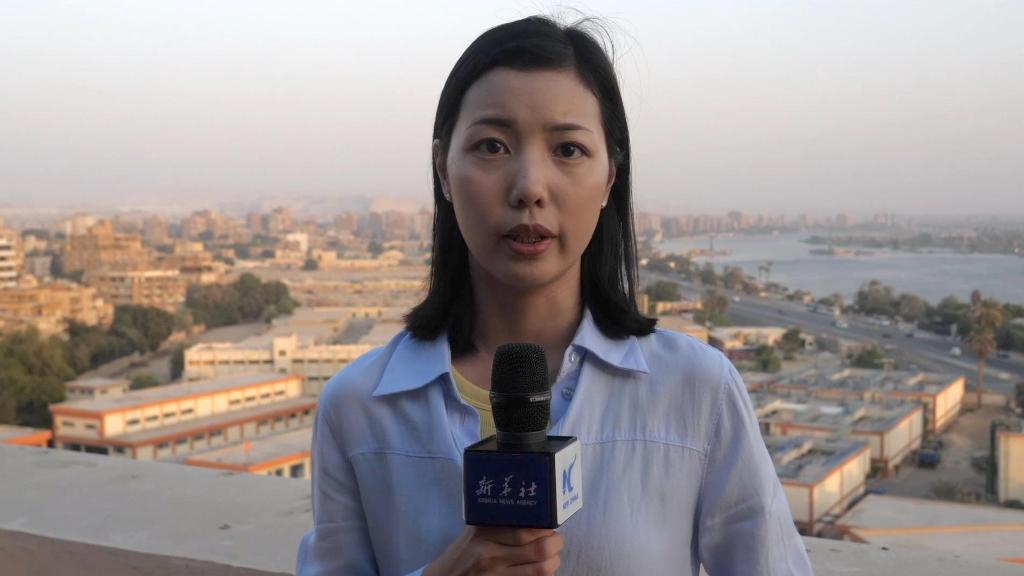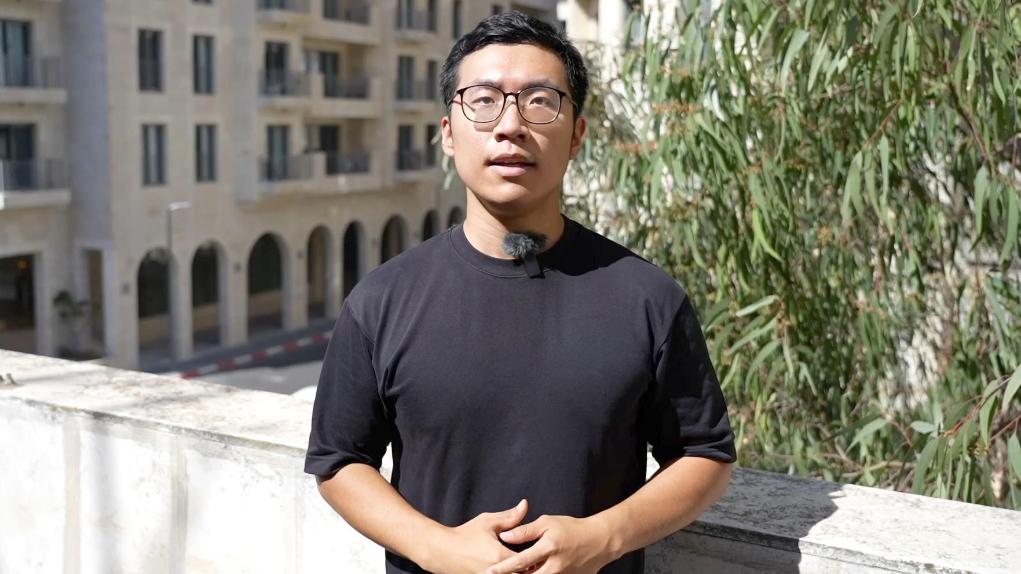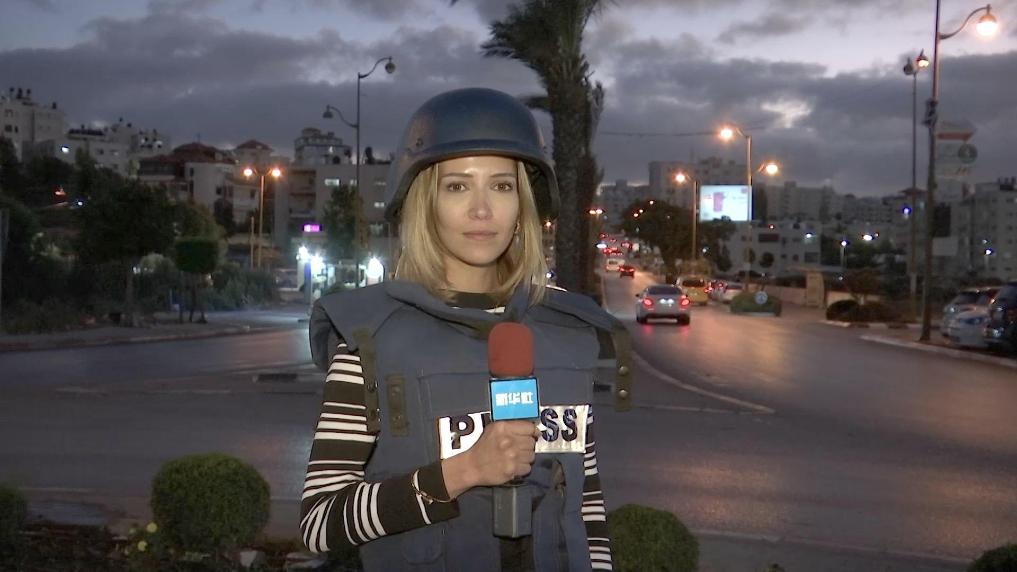"I wished I had been killed," lamented 12-year-old Palestinian amputee Samih Abdul Wahid, his voice barely above a whisper. "I have nothing left in this terrible life but become a burden to society."
GAZA, Oct. 7 (Xinhua) -- In the central Gaza Strip, Samih Abdul Wahid, a 12-year-old Palestinian amputee, faces daily challenges using only his right leg. Seven months ago, an Israeli attack in Gaza City claimed not only his left leg but also the lives of his parents, stripping away his hope for the future.
"The blast caused a huge white cloud around me which then turned black," Abdul Wahid recounted, "When I woke up in the hospital, my leg was gone, so were my parents."
After two-month treatment in the hospital, Abdul Wahid now lives with his aunt under a makeshift tent on the beach of Deir al-Balah, a city more than 14 km south of Gaza City. To get food from the nearest market, he must walk at least 2 km using a crutch, with each step feeling like a struggle.
"I wished I had been killed," the boy lamented, his voice barely above a whisper. "I have nothing left in this terrible life but become a burden to society."
Since the outbreak of the conflict between Israel and Hamas in Gaza on Oct. 7, 2023, over 41,800 Palestinians have been killed, and more than 96,900 injured in the Gaza Strip, with a significant proportion of them being children and women, according to health authorities in Gaza.
The World Health Organization estimates in mid-September that at least 22,500 of these injuries are "life-changing" that require long-term rehabilitation. Among these, severe limb injuries are most prevalent, with amputations numbering between 3,000 and 4,000.
Most attempts to save limbs from amputation have failed due to deep wounds, severe infections, and particularly the unusual injuries inflicted by the weapons, Marwan Al Hams, director of field hospitals in Gaza, told Xinhua.
Besides, Al Hams said, doctors are facing significant challenges to save the injured due to a shortage of medical supplies. "We work in horrible circumstances, and we are forced to make painful decisions regarding amputations," the doctor added.
The psychological trauma of amputation is frequently deep and long-lasting.
"I dreamed of recording life in Gaza as a photographer, but now my hands were blown up and my dream was shattered," lamented Diaa al-Odaini, a 15-year-old boy from Deir al-Balah, who lost both hands in a recent Israeli assault.
According to Al Hams, amputees like al-Odaini face significant challenges in obtaining adequate care in Gaza. For them, seeking treatment and obtaining prosthetic limbs abroad remain as their limited options to restore hope in life.■



